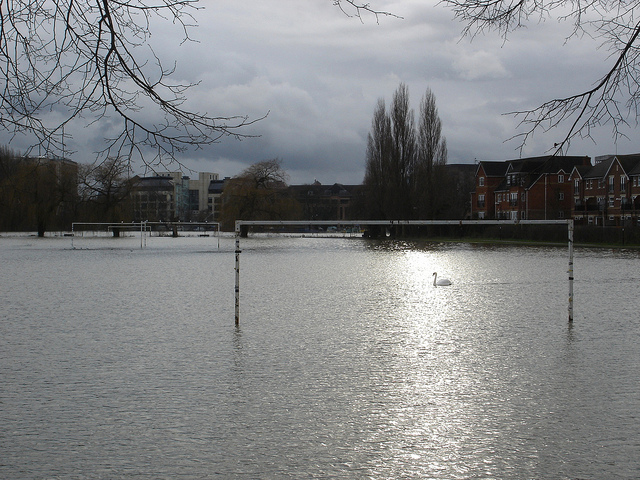A changing climate is expected to mean more extreme weather events such as intense rainfall and floods, heat waves and droughts – and these impacts are expected to increase over time. Ben Burfoot from Reading Borough Council and Chris Beales from Reading Climate Change Partnership will explore what the local impact will be, and how we can reduce our carbon footprint, in their Reading 2050 public lecture on 31 January.

Eleanor Roosevelt wrote: ‘You must do the things you think you cannot do.’
What seemed unimaginable only a decade ago, is now widely considered as the inevitable future. Fossil fuels powered the industrial revolution, but clean renewable energy will power future generations.
National progress in the UK has been relatively good, with carbon emissions having been reduced by 42% since 1990. In Reading we have achieved the same reductions but in half the time (since 2005).
But the game has changed. The issue now is not whether we change – but by when we do it. Thanks to the research of climate scientists we now know not only what needs to be done but how fast we need to act.
The latest Intergovernmental Panel on Climate Change (IPCC) report tells us that the west needs to decarbonise – that is, reduce the amount of greenhouse gases released into the atmosphere – by 2030.
Our success to date has been down to our dash to gas and our rapid investment in renewables, but we now face a more substantial challenge. We need to move from using gas as the fuel to provide our heat, power and transport to using purely renewable sources.
But there remains a significant policy gap to achieve complete decarbonisation in the UK. The fifth UK carbon budget goes out beyond 2030 and this would only achieve a 57% reduction from 1990 levels. That’s far short of the 100% we need to achieve. Added to this, it is currently predicted by the committee on climate change that the UK will fail to achieve this by 2050 with our existing policy framework.
In Reading, before the latest IPCC report was published, Reading Borough Council committed to complete decarbonisation by 2050. Now the game has changed we need to figure out whether we can accelerate this. How will we do it?
In our Reading 2050 lecture on 31 January, Ben will describe how Reading Borough Council has run the numbers, and present his thoughts on what needs to be done. Chris will talk about the vision for the Reading Climate Change Partnership and our new 2020-2027 climate change strategy. He will also talk about the challenges we face, and the need for us to adapt to more extreme weather events in the future. We hope to see you there.
Learn more about the Reading Climate Change Partnership
